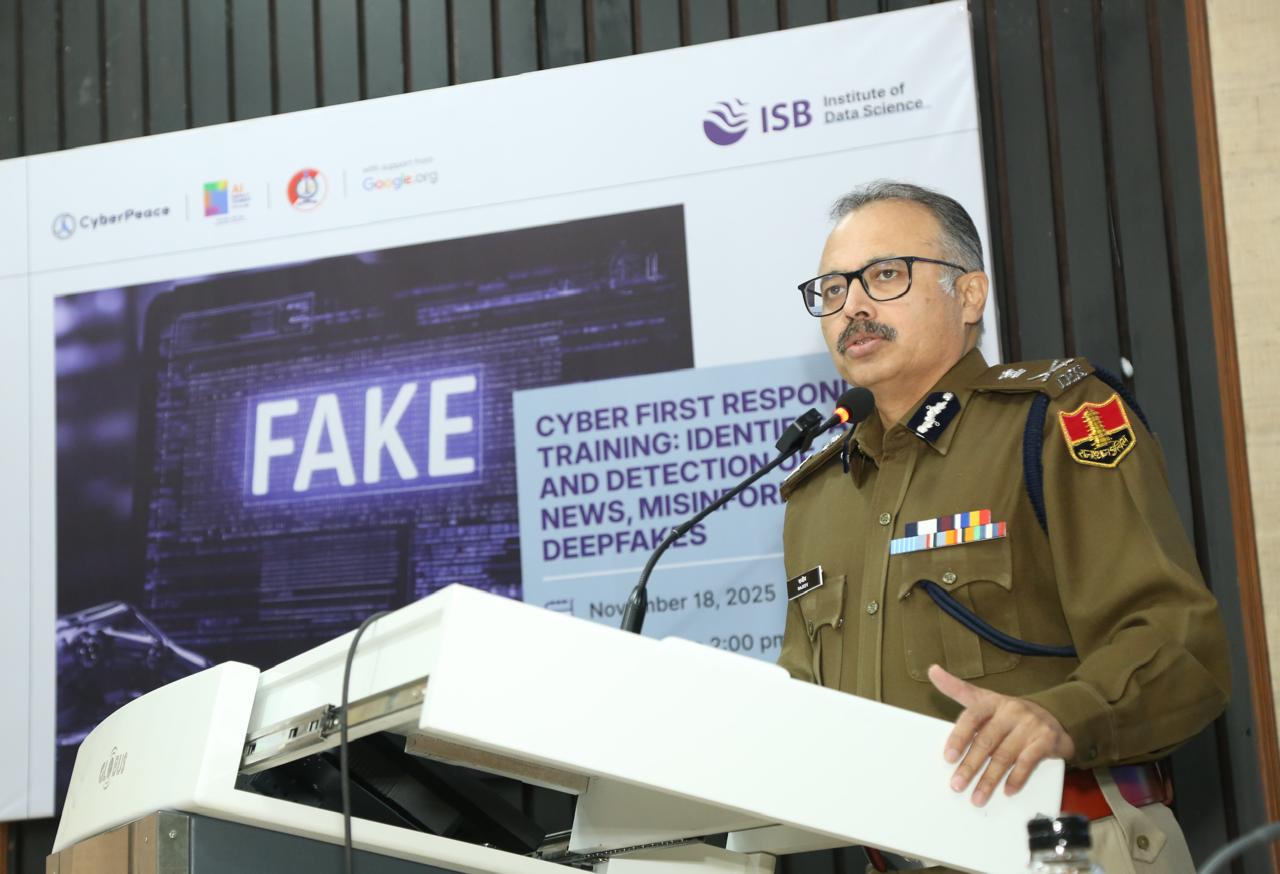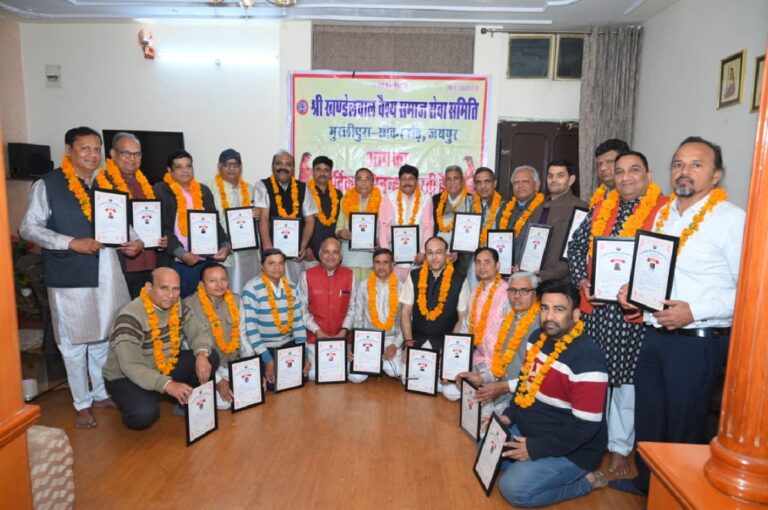
Jaipur: ISB Institute of Data Science (IIDS), part of the Indian School of Business (ISB), in collaboration with the CyberPeace Foundation and Rajasthan Police, organised an exclusive workshop for journalists titled –‘Cyber First Responder Training: Identification and Detection of Fake News, Misinformation and Deepfakes’, in Jaipur.
Organised as part of a nationwide initiative to strengthen India’s information ecosystem, this workshop served as an official pre-conference workshop leading up to the India–AI Impact Summit 2026, hosted by the Ministry of Electronics and Information Technology (MeitY). Hosted by the Ministry of Electronics and Information Technology, the global platform is set to showcase the transformative role of AI in enabling inclusive development, sustainability, and fostering equitable progress.
The workshop showcased the transformative role of AI in enabling inclusive development, sustainability, and fostering equitable progress. It also served as a platform to explore how responsible AI adoption can enhance information integrity and build societal resilience against misinformation.
In his welcome address, Shri Rajeev Sharma, IPS, DGP Rajasthan, stated, ‘In today’s digital era, misinformation, fake news, and deep fakes pose a serious threat not just to public trust but also to social harmony. Journalists, media professionals and content creators are our first line of defence in ensuring that truth prevails over distortion. This workshop reflects Rajasthan Police’s commitment to strengthening digital vigilance and fostering responsible information practices. Rajasthan Police, for this workshop, collaborated with ISB and the Cyber Peace Foundation to equip the media with skills needed to identify, verify and counter emerging digital threats.’
The workshop featured sessions led by experts from the ISB Institute of Data Science (IIDS) and the CyberPeace Foundation. These sessions covered topics such as AI-assisted fact-checking, detection of deepfakes in video and image content, and recognising patterns of misinformation, including emotional bias, sensational language, and out-of-context visuals. Participants also engaged in hands-on exercises, live fact-checking, and analysis of real-world case studies, along with practice in crafting effective AI prompts for verification.
Professor Manish Gangwar, Executive Director, ISB Institute of Data Science (IIDS), highlighted that the workshop is designed to empower journalists to report responsibly in an era of rapid digital disruption. He noted that by combining data science, AI, and media literacy, ISB aims to strengthen journalists’ ability to detect misinformation and promote public trust in credible information.
Major Vineet Kumar, Founder & Global President, CyberPeace, emphasised that fake news, AI-generated misinformation, and deepfakes are not merely technological challenges but fundamental issues of public trust. He noted that the foundation, in collaboration with ISB, aims to equip journalists and content creators with practical detection and verification skills to identify synthetic media and prevent harm before it spreads, ultimately strengthening the information ecosystem and ensuring “faster truth and fewer harms.”
The workshop brought together media professionals to address the growing challenges of misinformation, deepfakes, and cyber threats, equipping journalists with practical tools and techniques to identify and counter false information in the digital era. The workshop was marked by sessions featuring hands-on exercises such as live fact-checking, analysis of real-world case studies, and practice in crafting effective AI prompts for verification. Participants also learned to recognise common patterns of misinformation, such as emotional bias, sensational language, and out-of-context visuals, and to use AI-powered tools for detecting deepfakes in both video and image content.
Media professionals gained valuable insights into responsible AI use, ethical reporting practices, and cybersecurity awareness. The workshop underscored ISB’s commitment to empowering stakeholders and fostering responsible, technology-aware journalism.


